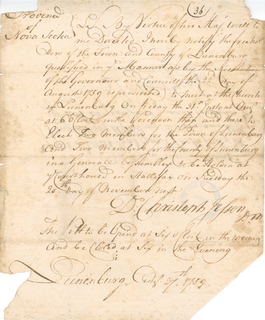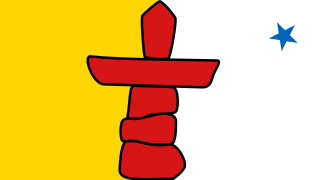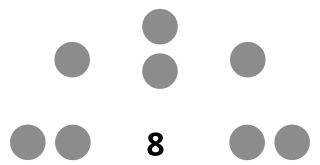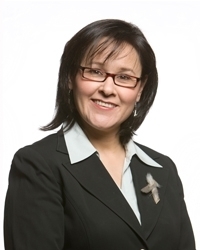| |||
17 out of the 19 seats in the Legislative Assembly of Nunavut | |||
| Turnout | 72% [1] ( | ||
| |||
The Third Nunavut General Election took place on October 27, 2008, to return members to the 3rd Legislative Assembly of Nunavut. The election was contested across 15 of Nunavut's 19 electoral districts under the first past the post system of voting. Due to local circumstances, the election was delayed in two districts, and two districts did not hold elections as their incumbent MLAs faced no opposition and were acclaimed back into office.
An acclamation, in its most common sense, is a form of election that does not use a ballot. "Acclamation" or "acclamatio" can also signify a kind of ritual greeting and expression of approval in certain social contexts as in ancient Rome.
Contents
- Pre-election
- Federal election
- Election infrastructure
- Issues
- Election summary
- Election results
- By-elections
- South Baffin
- Akulliq
- Notes
- References
- External links
Ten of the 15 seats went to first-time MLAs, four of whom defeated incumbents. Premier Paul Okalik and Finance Minister Louis Tapardjuk were the only two cabinet ministers to keep their seats. [2]
A Member of the Legislative Assembly (MLA), or a Member of the Legislature (ML), is a representative elected by the voters of a constituency to the legislature or legislative assembly of a sub-national jurisdiction.
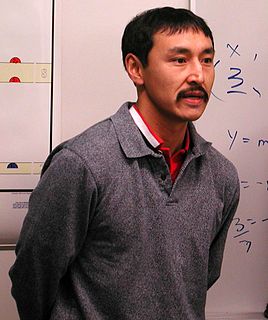
Paul Okalik is a Canadian politician. He is the first Inuk member to have been called to the Nunavut Bar and the first Premier of Nunavut.
Louis Tapardjuk was the Member of the Legislative Assembly (MLA) for the electoral district of Amittuq from 2004 to 2013, having won the seat in the 2004 Nunavut election. He served in the Executive Council of Nunavut the Minister of Finance and Minister of Culture, Language, Elders and Youth (CLEY).
The political system in Nunavut is not organized along political party lines, but instead uses a consensus government model in which the Executive Council of Nunavut is selected by the members of the Legislative Assembly at the Nunavut Leadership Forum. At the 2008 forum, held on November 14, 2008, Eva Aariak was selected as the new Premier of Nunavut.
A political party is an organized group of people, often with common views, who come together to contest elections and hold power in the government. The party agrees on some proposed policies and programmes, with a view to promoting the collective good or furthering their supporters' interests.

A consensus government is one in which the cabinet is appointed by the legislature without reference to political parties. Consensus government chiefly arises in non-partisan democracies and similar systems in which a majority of politicians are independent. Many former British territories with large indigenous populations use consensus government to fuse traditional tribal leadership with the Westminster system. Consensus government in Canada is used in Northwest Territories, Nunavut, and Nunatsiavut, and similar systems have arisen in the Pacific island nations of Fiji, Tuvalu and Vanuatu, as well as the ancient Tynwald of the Isle of Man.
The Executive Council of Nunavut or cabinet includes a Premier and seven Ministers and is elected by the members of the Legislative Assembly from among the Assembly members.
